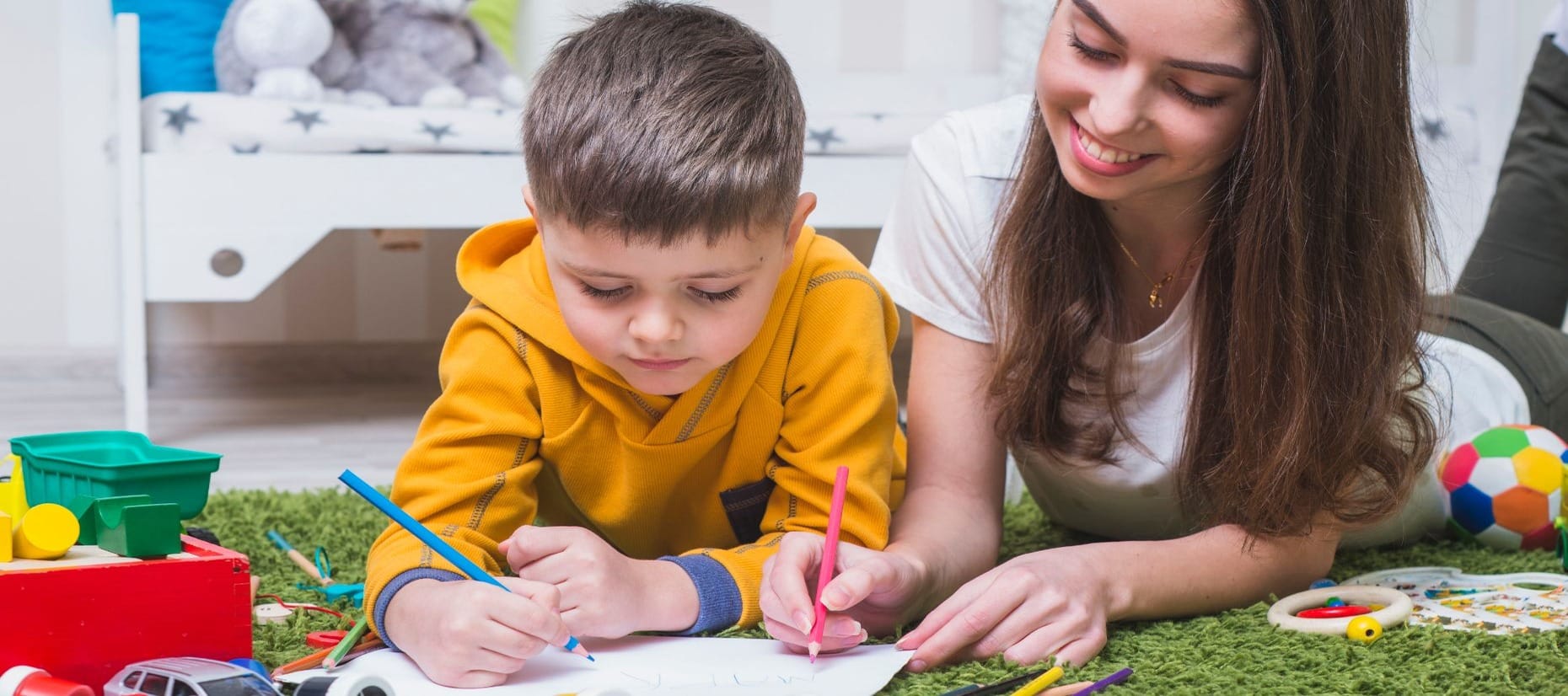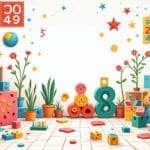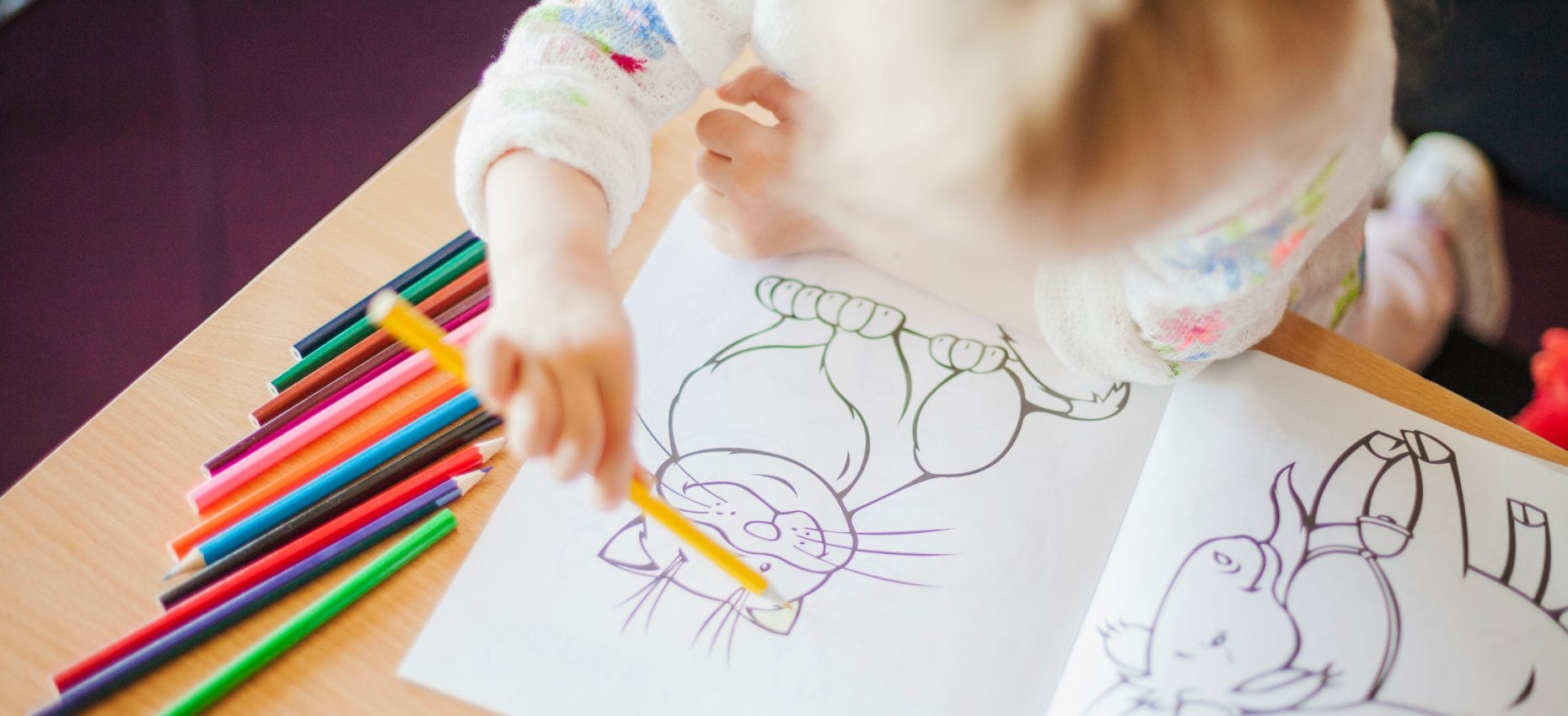Introduction
Developing early mathematical skills in preschoolers is one of the most critical aspects of their educational journey. It’s like planting a seed that, with nurturing, will grow into a robust tree of knowledge. Children who build a strong foundation in math at an early age are more likely to excel in school and develop problem-solving skills that benefit them throughout life.
This article explores innovative and fun techniques to enhance preschoolers’ mathematical abilities, focusing on play, creative worksheets, hands-on activities, and more.
The Role of Play in Developing Mathematical Skills
Play is an essential part of childhood, and it can also be an effective way to introduce mathematical concepts. Games that involve counting, sorting, and recognizing patterns can make math learning exciting and enjoyable for young children. Activities like building blocks, puzzles, and board games introduce concepts of shape, size, and quantity in a way that feels natural to them. By encouraging play-based learning, you are allowing preschoolers to explore math concepts in a relaxed and engaging environment.
Examples of Math-Related Games:
- Counting games: Simple games like counting objects, steps, or toys can reinforce number recognition and counting skills.
- Shape sorting: Shape sorter toys or homemade shape sorting activities help children recognize and categorize shapes.
- Board games: Games like “Snakes and Ladders” introduce basic counting and number sense in a playful manner.
Creative Math Worksheets for Preschoolers
Worksheets can be a valuable tool for reinforcing mathematical concepts in a structured manner. However, they need to be age-appropriate, visually appealing, and engaging to hold the attention of preschoolers. Creative worksheets that incorporate colors, shapes, and simple exercises can make learning math fun.
Designing Age-Appropriate Math Worksheets:
- Colorful visuals: Use bright and bold colors to attract attention and make worksheets more engaging.
- Interactive elements: Include sections for drawing shapes, connecting dots, or matching numbers to encourage interaction.
- Theme-based worksheets: Create worksheets around themes like animals, nature, or holidays to keep the content interesting.
Pattern Recognition Activities
Patterns are everywhere, and recognizing them is a key skill that leads to mathematical reasoning. Teaching preschoolers to identify and create patterns helps them develop critical thinking skills that will be essential in more advanced math concepts.
Fun Activities to Teach Pattern Recognition:
- Bead threading: Let children create patterns with colored beads on a string.
- Clothing patterns: Encourage them to spot patterns in their clothes, like stripes or polka dots.
- Building block patterns: Use blocks of different colors and shapes to form repeating patterns.
Counting and Number Sense
Counting is one of the most basic yet essential math skills. Helping preschoolers develop strong number sense means they understand not just how to count but also the concept of numbers and their relationships.
Interactive Counting Activities:
- Counting toys: Use toys like cars, dolls, or building blocks to practice counting.
- Sing counting songs: Songs like “Five Little Ducks” or “Ten in the Bed” make counting fun and memorable.
- Number scavenger hunt: Hide numbers around the house and ask your child to find and arrange them in order.
Spatial Awareness and Geometry
Introducing preschoolers to basic geometric shapes and spatial awareness sets the stage for later math learning. These skills are crucial for understanding the properties of objects and how they relate to one another in space.
Hands-On Geometry Activities:
- Shape puzzles: Use puzzles that focus on fitting shapes together.
- Drawing shapes: Encourage preschoolers to draw different shapes and name them.
- Shape scavenger hunt: Find shapes in everyday objects, like circles in wheels or squares in windows.
Sorting and Categorization
Sorting is more than just tidying up—it’s a fundamental math skill that helps children understand relationships and group objects based on specific characteristics. It introduces concepts of classification and sets.
Simple Sorting Exercises:
- Color sorting: Use colored buttons, toys, or paper cut-outs for sorting by color.
- Size sorting: Arrange objects from smallest to largest or vice versa.
- Shape sorting: Encourage sorting by shape with everyday items like plates, lids, or toys.
Measurement Concepts for Preschoolers
Measurement is a concept that young children can grasp with hands-on activities. Whether it’s understanding size, length, or volume, introducing measurement in a playful way helps preschoolers connect it to real-life experiences.
Activities for Understanding Measurement:
- Measuring with non-standard units: Use hands, feet, or blocks to measure objects around the house.
- Pouring activities: Teach volume by allowing children to pour water or sand into different-sized containers.
- Comparing sizes: Help them compare the size of toys, furniture, or even foods.
Incorporating Technology into Math Learning
In today’s digital age, technology can be a powerful ally in teaching math. Educational apps and games designed for preschoolers can reinforce concepts like counting, sorting, and pattern recognition in an interactive way.
Recommended Math Apps for Preschoolers:
- Endless Numbers: This app introduces number recognition and counting in a playful way.
- Moose Math: Designed to build early math skills through games.
- Monkey Preschool Lunchbox: A fun app that teaches colors, shapes, and counting.
Incorporating Math into Daily Routines
Math is all around us, and you can make it a natural part of your preschooler’s day by incorporating simple math activities into your daily routines.
Simple Daily Math Activities:
- Cooking: Measuring ingredients introduces concepts of volume and number.
- Shopping: Counting items in the cart or comparing prices can reinforce number sense.
- Time-telling: Teach basic time concepts by asking your child to recognize numbers on a clock.
The Role of Storytelling in Math Learning
Stories have a unique way of capturing a child’s attention. Incorporating math into storytelling can help explain concepts in a way that feels less like a lesson and more like an adventure.
Example Stories That Highlight Math Concepts:
- “One Duck Stuck” by Phyllis Root: A fun counting story with repetition that reinforces number concepts.
- “The Very Hungry Caterpillar” by Eric Carle: This classic story incorporates counting and sequencing.
- “Ten Apples Up On Top!” by Dr. Seuss: A playful way to explore numbers and counting.
The Importance of Hands-On Activities
Preschoolers learn best when they can touch, explore, and experiment. Hands-on activities that encourage manipulation of objects and experimentation allow children to internalize math concepts in a way that is meaningful to them.
Hands-On Math Learning Activities:
- Building towers: Use blocks to create towers of different heights and compare them.
- Water play: Experiment with filling containers of various sizes to understand volume.
- Clay shapes: Mold clay into different shapes to reinforce geometry skills.
Engaging with Nature for Math Learning
Nature is a vast playground for learning math concepts. Exploring the outdoors offers endless opportunities to introduce math in a natural and engaging way.
Outdoor Math Activities:
- Counting flowers or leaves: Practice counting by collecting natural items.
- Creating patterns with rocks: Arrange rocks, leaves, or flowers in repeating patterns.
- Shape recognition in nature: Identify shapes in clouds, leaves, or stones.
Parental Involvement in Early Math Education
Parents play a crucial role in supporting their child’s early math education. By incorporating simple math activities into everyday life and offering positive reinforcement, parents can help preschoolers develop a love for math.
Tips for Parents:
- Be patient: Allow your child to explore and understand concepts at their own pace.
- Praise efforts, not just results: Celebrate the process of learning, not just the correct answers.
- Make math fun: Keep activities light-hearted and stress-free to encourage a positive attitude toward math.
Conclusion
Enhancing preschoolers’ mathematical abilities doesn’t have to be complicated. With a mix of play-based learning, creative worksheets, hands-on activities, and a supportive environment, children can build a strong foundation in math that will benefit them for years to come. By incorporating these innovative techniques into preschool education, parents and teachers can help young learners develop the confidence and skills they need to succeed in mathematics.
Latest Posts

How to Make Math Exciting for Early Learners (K-2)
Discover creative strategies and engaging activities...
Read more
Enhancing Early Childhood Cognitive Development Through Play
Discover how play fosters creativity, problem-solving,...
Read more
Boosting Confidence in Children: Practical Tips for Parents
Discover practical tips to help boost...
Read more
The Role of Technology in Modern Kids’ Education
Explore how technology transforms kids’ education,...
Read more
Related post
-

The Role of Technology in Modern Kids’ Education
Explore how technology transforms kids’ education, offering personalized learning, global access, and essential skills while addressing key challenges.
Read more -

Top 5 Benefits of Coloring Activities for Kids
With colorful images and captivating themes, children will delight in the challenge of matching pictures, fostering cognitive development and problem-solving…
Read more -

How to Encourage Critical Thinking Skills in Young Learners
With colorful images and captivating themes, children will delight in the challenge of matching pictures, fostering cognitive development and problem-solving…
Read more









